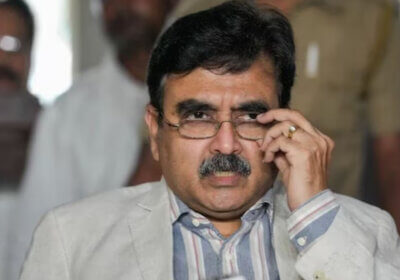The independence struggle of India lasted nearly a century, with thousands of people sacrificing themselves to achieve it. The Communists played a crucial role in making British leave unavoidable. Mahatma Gandhi was determined to defend minorities and his call for calm in fostering peace and harmony. Gandhi’s courage and faith in the unity of the people served as a foundation for secularism and respect for one another.
As the country advances towards the conclusion of “Azaadi Ka Amrit Mahotsav (AKAM),” ethnic conflict remains a problem in Manipur, which became a relief camp due to violence. The BJP, which opposes Gandhiji’s concern for unity, believes that hatred has to be used as fuel for the RSS-BJP’s “double-engine” to operate.
Religion has become weaponized, as seen in the tragic incident of six people dying in Haryana after a cow vigilante called for large crowds to gather for a religious procession. The region has experienced unstable peace and a lack of normalcy since then.
The nation’s leadership and homeland faced challenges during the transition from the Union Jack to the Tricolour, but leaders who genuinely cared about the people rose to the occasion, bravely met the challenges, and helped create a modern nation.
Gandhi, Nehru, and Patel’s dream of an independent India collapses by the BJP’s dual-engine strategy
The survival of democracy in a developing nation like ours that just experienced widespread intergroup violence was under scrutiny by the international community. Nevertheless, our leaders put forth great effort to provide India with the liberal, democratic, and secular foundations upon which our Republic stood on January 26, 1950.
India achieved freedom on August 15, 1947, from British colonial grip
The battle for independence from the colonial grip lasted almost a century before we finally achieved freedom on August 15, 1947. Thousands of people sacrificed themselves to liberate our nation from British rule, and their sacrifices were fruitful in securing our independence.
The Communists, who displayed their strength in the previous conflict of Indian independence, the Royal Indian Navy mutiny, served a crucial part in rendering the British leaving unavoidable The Indian National Army and Netaji both made significant contributions to the nation’s freedom struggle.
The atmosphere of the Subcontinent was full of hostility and violence
The Subcontinent separated into India and Pakistan we attained our independence. The adverse effects of British rule and Partition stiffened communities’ perspectives on one another, and the atmosphere was rife with hostility and violence.
Gandhi was there determined to defend minorities
The key figure in our freedom battle was in Calcutta on that crucial day, August 15, 1947. Recently, bloodbath in the east of the country, and Mahatma Gandhi was there to help our young nation’s citizens heal the wounds of inter-communal violence. Gandhi visited Noakhali, which is now in Bangladesh when the unrest there was at its worst. He was there determined to defend minorities from the wrath of angry mobs caused by the establishment of East Pakistan.
The first step towards the foundation of “Secularism”
Gandhi’s call for calm was successful, and the racially motivated mobs got crushed by his empathy for the populace of his nation. Gandhi’s bravery and faith in the unity of our people served as a foundation for secularism and respect for one another, which allowed our vastly different population to take its first steps toward freedom.
After a short while, Gandhi went on another journey, towards the northwest, with the same goals of fostering peace and bringing people together. It was ablaze in the Mewat region, now part of Rajasthan, UP, and Haryana. Numerous Muslims chose to emigrate to Pakistan because they feared violence.
The minority population chose to stay in democratic India
Gandhi spoke to the crowd while wearing a dhoti, inspiring the populace to believe India can safeguard its minorities. He stated, “India pertains to you, and you are part of India.” Instead of migrating to Pakistan, the minority population chose to remain in the democratic, secular nation of India. Gandhi kept his promise.
As AKAM concludes, we face a similar situation
We are in a similar position today as the country advances towards the conclusion of “Azaadi Ka Amrit Mahotsav (AKAM).” Ethnic conflict is a problem in Manipur, which sits in eastern India. The entire state became a relief camp because of the violence that broke out all over the state on May 3.
For the BJP, Gandhiji’s concern for unity means nothing
Gandhiji’s bravery and commitment to national unity are meaningless to the BJP. Finally, The Prime Minister spoke out about Manipur after watching a disgraceful video of women getting off their clothes and paraded. The Home Minister acknowledged that there was already fire but claimed the High Court order brought fuel to it.
Was the government discovered to be asleep? No, for the RSS-BJP’s “double-engine” to operate, hatred has to get used as fuel. Manipur is suffering due to the double engine.
How religion can get weaponized
Six people perished on July 31 after a self-described cow vigilante called for large crowds to gather for a religious procession conducted by the Vishwa Hindu Parishad of the Sangh Parivar in footage posted on social media. This incident in Haryana is a textbook example of how religion has become weaponized.
This Bajrang Dal member and cow vigilante sought in connection with the kidnapping and murder of two Muslim men, whose bodies appeared in a burned-out car in February of this year. Since then, the region has experienced unstable peace and a lack of normalcy.
Our nation’s leadership and homeland faced challenges when we gained our independence. The transition from the Union Jack to the Tricolour was the largest migration in modern history. Leaders who genuinely cared about the people rose to the occasion, bravely met the challenges, and helped in the modern nation that we all love and respect.























Leave a Reply